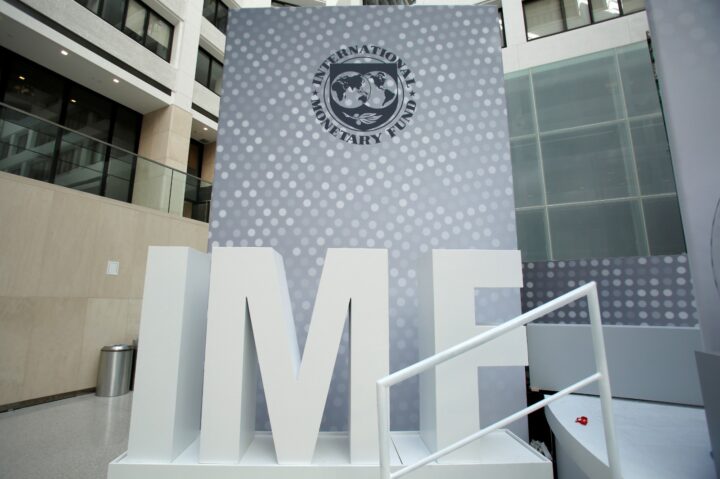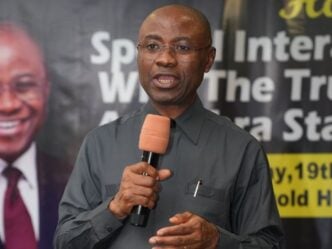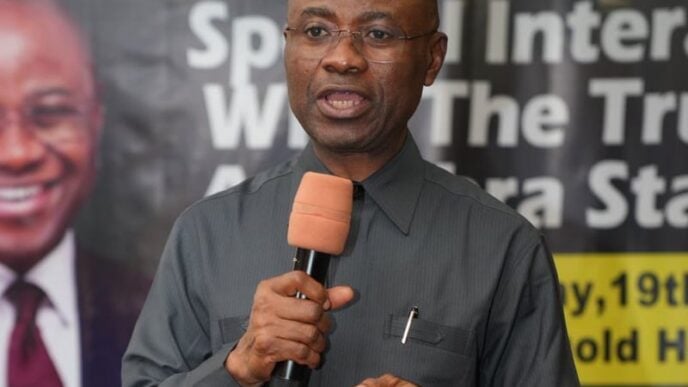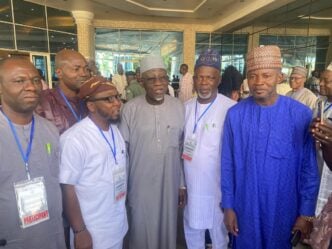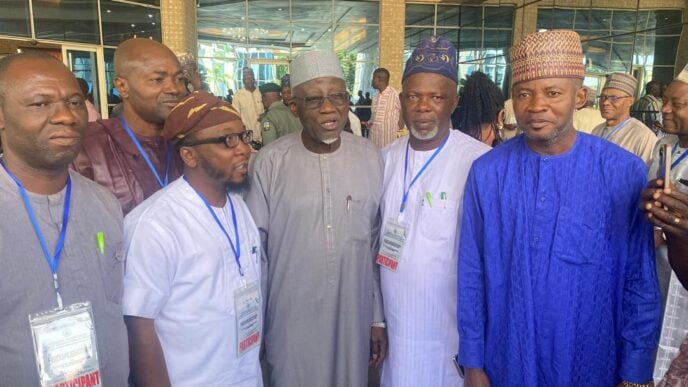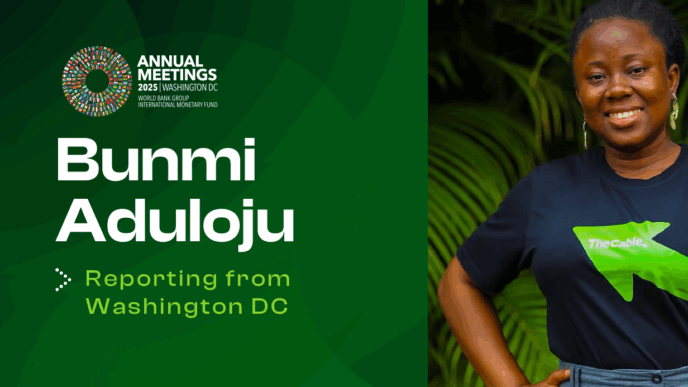Here are the seven top business stories you need to track this week — October 13 to October 17.
WORLD BANK/ IMF 2025 MEETINGS
The World Bank Group (WBG) and the International Monetary Fund (IMF) are set to hold the 2025 annual meetings.
The meeting will take place from October 13 to October 18 in Washington D.C.
Advertisement
The Nigerian delegation will participate in critical meetings such as the plenary session, the development committee and the IMF committee meetings.
The meetings will also feature regional briefings, press conferences, and many fora focused on international development, the global economy, and financial markets.
NIGERIA’S OCTOBER INFLATION
Advertisement
The National Bureau of Statistics (NBS) is expected to release a report on Nigeria’s consumer price index (CPI) and inflation for October 2025.
In September, the NBS reported that Nigeria’s CPI, which measures the rate of change in prices of goods and services, decreased to 20.12 percent — down from 21.88 percent in the previous month.
The statistics agency said the food inflation rate in August was 21.87 percent — down from 22.74 percent in July.
TINUBU SEEKS N’ASSEMBLY APPROVAL TO BORROW $2.35BN, ISSUE $500M SOVEREIGN SUKUK
Advertisement
President Bola Tinubu has asked the house of representatives to approve a plan to borrow $2.35 billion in external capital to finance part of the 2025 budget deficit and refinance Nigeria’s maturing eurobonds.
The president also sought approval to issue a $500 million debut sovereign sukuk in the international capital market (ICM) to fund infrastructure projects and diversify Nigeria’s sources of financing.
Tinubu said the borrowing plan includes $1.23 billion (N1.84 trillion) provided for in the 2025 Appropriation Act to part-finance the budget deficit, and another $1.12 billion to refinance a eurobond maturing on November 21.
NUPRC, FIRS, NCS… WORLD BANK SAYS NIGERIAN AGENCIES GET HIGHER REVENUE ALLOCATION THAN AFRICAN PEERS
Advertisement
The World Bank says funding allocated to Nigerian revenue-generating agencies is significantly higher compared to their counterparts in other African countries.
In its latest Nigeria Development Update (NDU) report, the bank said the agencies are the Federal Inland Revenue Service (FIRS), Nigeria Customs Service (NCS), and the Nigerian Upstream Petroleum Regulatory Commission (NUPRC).
Advertisement
Others are the Revenue Mobilisation Allocation and Fiscal Commission (RMAFC), Niger Delta Development Commission (NDDC), the Nigerian National Petroleum Company (NNPC) Limited, and the frontier exploration fund.
WALE EDUN HINTS AT NEW FEDERAL BILLING SYSTEM
Advertisement
Wale Edun, minister of finance and coordinating minister of the economy, says the federal government is determined to ensure full transparency in public finances by bringing all government funds under the supervision of the Central Bank of Nigeria (CBN).
The minister said the new fiscal reforms intend to strengthen accountability, improve efficiency, and ensure that every naira of public revenue is properly tracked.
Advertisement
To support this, Edun said the government has introduced a new federal billing system to monitor payments for goods and services, ensuring that all transactions are traceable and accurately recorded.
NO OFFICIAL INCREASE IN LPG PRICE — SOME RETAILERS EXPLOITING SCARCITY
The Nigerian Association of Liquefied Petroleum Gas Marketers (NALPGAM) says some retailers are exploiting the current supply shortage to hike the price of liquefied petroleum gas (LPG), also known as cooking gas.
Oladapo Olatunbosun, the association’s national president, spoke on October 8 during Channels Television’s ‘The Morning Brief’ show.
Olatunbosun clarified that the price of the product has not been officially increased.
However, at several retail outlets in Lagos, the price of the product rose to between N2,080 per kg and N2,200 per kg.
NIGERIA’S OIL OUTPUT DROPPED TO 1.58MBD IN SEPTEMBER DUE TO PENGASSAN’s STRIKE
The Nigerian Upstream Petroleum Regulatory Commission (NUPRC) says Nigeria’s crude oil and condensate production fell to an average of 1.58 million barrels per day (mbpd) in September.
In a statement on Saturday, the NUPRC said the reduction was due to the three-day strike by the Petroleum and Natural Gas Senior Staff Association of Nigeria (PENGASSAN) and scheduled maintenance at two key facilities
Eniola Akinkoutu, the head of media and strategic communication at the NUPRC, released the report showing Nigeria’s September oil production comprised 1.39 million bpd of crude oil and 191,373 bpd of condensates, totalling 1.58 million bpd.
